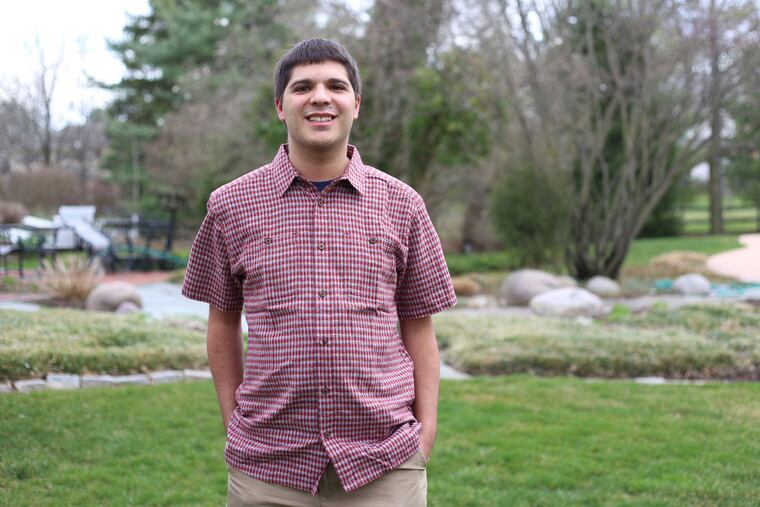Inflammatory bowel disease particularly challenging for younger patients
For young people diagnosed with Crohn's disease or ulcerative colitis - collectively known as inflammatory bowel disease (IBD) - growing up becomes more complicated than usual and fraught with insecurity. Sometimes, young IBD patients turn their disease into a secret, and live in fear that they will be discovered.

For young people diagnosed with Crohn's disease or ulcerative colitis - collectively known as inflammatory bowel disease (IBD) - growing up becomes more complicated than usual and fraught with insecurity. Sometimes, young IBD patients turn their disease into a secret, and live in fear that they will be discovered.
Many patients feel shame about having a disorder that involves the body's waste disposal system. They try to hide their disabling stomach pain or their urgent need to run to the bathroom multiple times a day. IBD may also cause joint pain, skin eruptions, severe cramping, rectal bleeding and lethargy, not easy topics to discuss even with close friends. These unsavory symptoms make children, teenagers and even college students ripe for teasing and even bullying.
For example, Chava Cohen, who lives in Connecticut, was diagnosed with ulcerative colitis at age 19 and was intermittently incontinent during college. "For someone at 19, 20, 21, it's devastating," she said. "I couldn't go out. Even going to class became challenging at times. I couldn't talk about it to anybody." Cohen recalled that during her senior year of college, someone she shared a bathroom with would pound on the door and yell, "I can't believe I have to listen to these noises!"
About 1.6 million Americans have IBD, with 70,000 new cases diagnosed each year. Although IBD can occur at any age, people are more frequently diagnosed between 15 and 35. Like many autoimmune illnesses, its cause is unknown, although about a quarter of cases can be traced to family history. IBD is to date incurable, though numerous medications treat its symptoms.
IBD can be exacerbated by stress but is not caused by it, unlike irritable bowel syndrome (IBS). The two conditions share some symptoms, but IBS does not cause bleeding, ulcerations and inflammation in the digestive system.
Trinity Waring, now 13, who lives in the Bethlehem, Pa., area, was severely ill with a form of IBD, ulcerative colitis, from early childhood until her large intestine was removed at age 9. "There were times she would say, 'Why is this happening to me,' " said her mother, Leanne. " 'Is it something I did, because I was mean to my sister the day before? I'll fix it.' "
When she was on prednisone, a steroid, to control the ulceration that riddled her colon, her face became enlarged and she gained weight. Classmates wrote "fat" and "cow" on her school desk.
Scott Berman, 26, was diagnosed with ulcerative colitis at age 12. He left graduate school to live with his parents in Gwynedd Valley, in Montgomery County. When he was younger, "he didn't want anyone to know," recalled his mother, Bryna. "It was traumatic for him."
His secret was exposed in college when his roommate discovered his stash of medications inside his bedside table.
Berman went into remission for the first time ever in 2014 after spending more than a decade on prednisone. He is an outreach worker for the Quiet Mind Foundation, where he learned biofeedback (a mind-body technique that helps patients control functions such as blood pressure and heart rate) to recover "from everything I went through." He is hoping to begin a job in conservation work with Montgomery County. He decided not to return to graduate school out of concern that the stress "might undermine some of the progress that I've made."
Fear of judgment is another motivator for keeping silent. Cohen speaks cautiously about her ulcerative colitis and only on an as-needed basis. She has to be sure her listener will empathize rather than criticize. "When you see the other person is not disgusted, you feel more comfortable," she said.
She starts by saying, "Yeah, I have problems in the bathroom. You move on to uncontrollable diarrhea, and then you move on to 'Sometimes, I can't make it to the bathroom.' "
Fran Martin, a psychologist in Elkins Park, has a daughter who was diagnosed with Crohn's disease at age 13. She ran support groups for parents of children with IBD at Children's Hospital of Philadelphia. She says there are reasons why some children do not see the benefits of sharing.
"For kids, keeping [their disease] a secret is a way to maintain a sense of control over something over which they have very little control," Martin said. However, the benefits of preserving control diminish over the years. "The toll of maintaining a secret as an adult is that while you maintain surface control, you get caught in a trap of isolation, and that's emotionally detrimental," she said. "We're social creatures who find comfort when we find even a small group with whom we can share our stories."
Linda Kriger, a former health writer for the Inquirer, is the author of "Gut Feelings: Social and Emotional Struggles with Crohn's and Colitis."